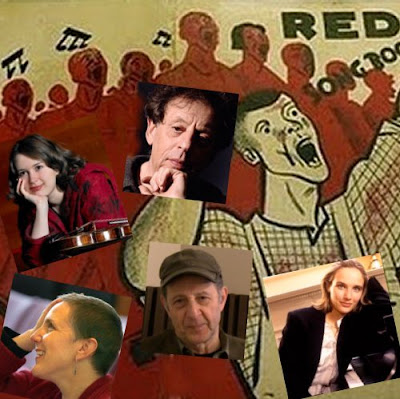Classical music must get bricks and mortar mobile
We live in an increasingly mobile world where we work and consume our entertainment on the move, with new technologies allowing our culture to become increasingly decentralised. Classical music is obsessively riding the wave of virtual mobility with a plethora of new apps and streaming services, yet the art form is swimming against the tide of physical decentralisation by concentrating its infrastructure investment on expensive central facilities such as the €789 million bricks and mortar Elbphilharmonie.
My wife and I recently took mint tea at a pavement café in Rabat with the irrepressible Olivier Holt. Olivier was having a break from rehearsing L'Orchestre Philharmonique du Maroc (Philharmonic Orchestra of Morocco) for the final of the international violin competition that was taking place in Casablanca and Rabat. Morocco had attracted world-class competitors including finalists 17 year old Elias David Moncado who won the hearts of the audience but not the judges, West-Eastern Divan member Mohamed Hiber, and overall winner the South Koran/American Juilliard graduate Elly Suh. Olivier Holt is the orchestra's conductor and artistic advisor, and my interview with him last year was headlined 'My role as conductor is to provoke curiosity and joy'.
In Morocco Olivier succeeds in provoking much curiosity and joy in conditions that are a million miles from those in the multi-million euro designer concert halls of the Western world. Rabat's soon to be replaced Théâtre National Mohammed V in Rabat is an acoustically-challenged gloomy venue that would not be out of place in Cold War East Berlin, while L'Orchestre Philharmonique du Maroc is not yet quite up to the standard of the Berlin Philharmonic. But Olivier Holt's mission is to make the most of a not quite perfect job, and he does this with a cheerful élan that puts his peers on the celebrity conducting circuit to shame.
Olivier Holt and other unsung heroes are setting the example of bricks and mortar mobility on a macro scale, but micro mobility within Western metropolitan conglomerations is also key to a healthy future for classical music. Public transport in urban areas is often expensive and unreliable, city centre car parking is impossible and food prices are crazy. If attracting a new audience is the first priority, decentralisation from downtown venues such as London's Barbican Hall and Southbank Centre to neglected suburban venues such as the acoustically admirable Fairfield Halls is where classical music should be spending its money. And, of course, the hegemony of the metropolises needs to be challenged by taking good music out to the provinces much more frequently.
All too often the argument of sound quality is used to defend the centralisation of live classical music into acoustically impeccable city centre venues. But new technologies in the form of digital sound enhancement systems now mean that acoustically poor venues can be made more than acceptable. And before the purists have a hissing fit about digital manipulation of live music, they should remember that the distribution platform of choice for the music industry is the acoustically-challenged MP3 file, and the listening mode of choice for consumers is the acoustically-challenged ear bud. Classical music must get bricks and mortar mobile to reach new audiences. Quite rightly Simon Rattle and the great and good of classical music have vigorously defended music education against accusations of elitism. Yet the multi-million pound Rattlephilharmonie that is being demanded for central London is a prime example of geo-political elitism.
We received two complimentary tickets for the Rabat concert of L'Orchestre Philharmonique du Maroc. Any copyrighted material is included as "fair use" for critical analysis only, and will be removed at the request of copyright owner(s). Also on Facebook and Twitter.









Comments